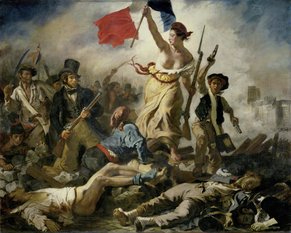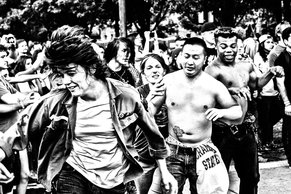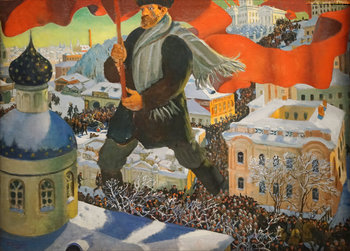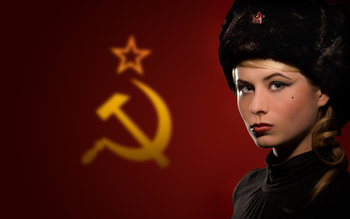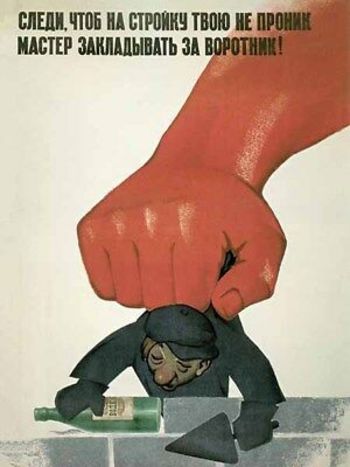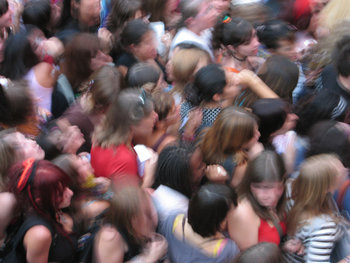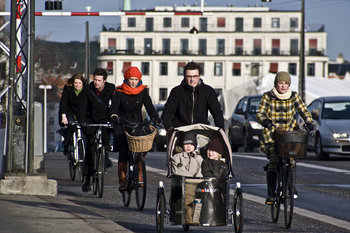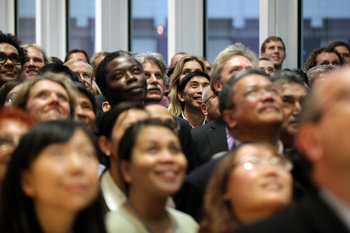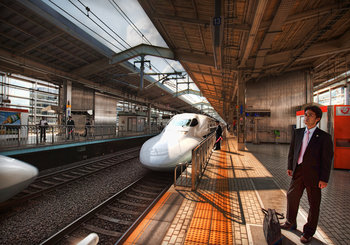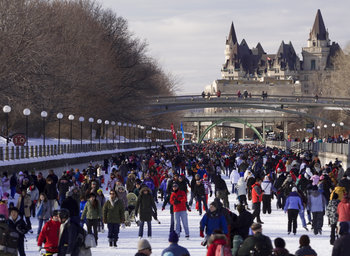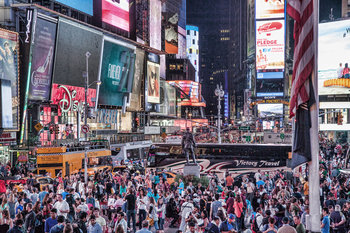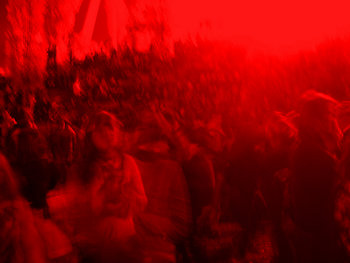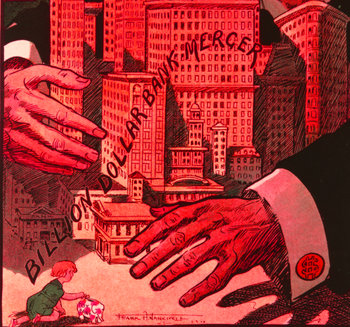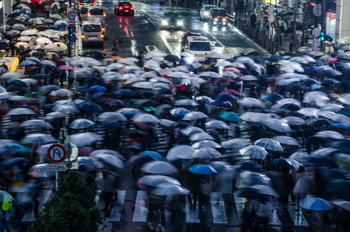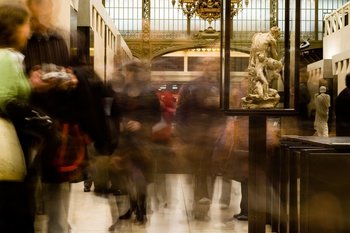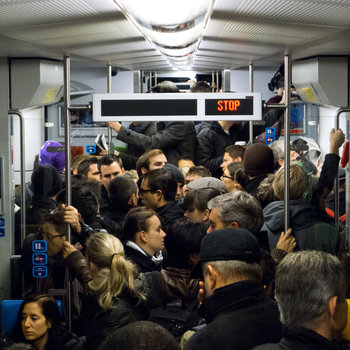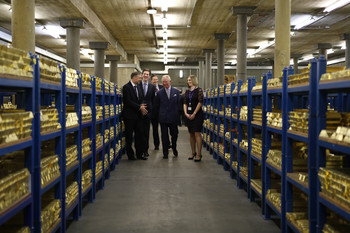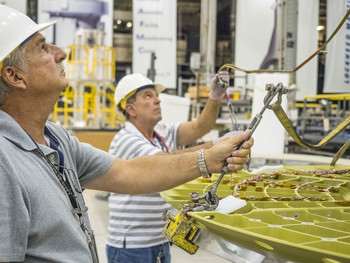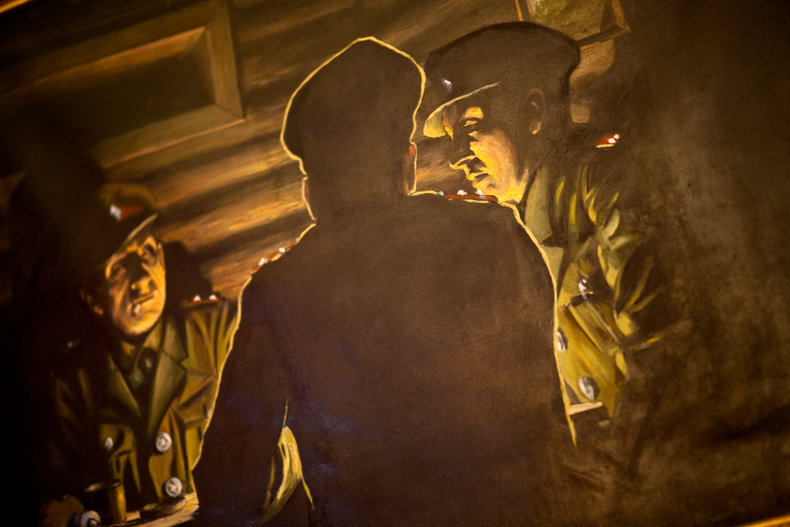
State Ownership
The state owns all capital in a communist system including all land, machines, buildings and infrastructure. Personal property is abolished or limited to personal items. For example, a communist society may move vast numbers of people out of their homes and into apartments in order to use the land for some purpose such as a factory or infrastructure project.Central Planning
In a capitalist system firms freely decide what to produce and consumers freely decide what to buy in a process known as markets. In a communist system, this is completely replaced by a system of state planning whereby the state sets production targets for all goods and services.Bureaucratic Elite
Central planning and state control of all property requires a large bureaucracy. As an ideology, communism claims to make "everyone equal." In practice, a bureaucratic elite emerges and competition shifts from producing value and innovation to competing for positions within the government."Common Good"
The profit motive is replaced by a system whereby the state assigns people to schools and jobs and labor is required by the state. Each individual must sacrifice their own aspirations and freedoms for the "common good" as this is viewed by the bureaucratic elite. Generally speaking, this is less motivating than freely working to improve things for yourself or your family.Competition
In a communist society, competition exists only within the system itself. For example, to become a professional dancer you must win the approval of the system to do so. A communism society resembles a gigantic telecom company with everyone positioning for more powerful or interesting roles in a single sprawling organization that has become inefficient under its own weight.Austerity
Communism is based on the idea of a class struggle whereby the proletariat come to dominate. As such, conspicuous consumption is frowned upon even amongst the bureaucratic elite who must downplay their advantages or risk punishment.Single Party
Communist societies have historically been a single party system whereby political opposition is not permitted. This may be an inherent feature of a society where all power is vested in a single organization -- a government without constraint or boundaries.Repression
As political opposition and economic freedoms aren't permitted, a communist system may repress these activities. Other freedoms may also be repressed such as freedom of speech, right to privacy, freedom of movement, freedom of association, freedom of religion and freedom from arbitrary detention. Historical communist systems were characterized by state control of every aspect of life, propaganda and "correct thinking" that was enforced by the coercive power of a state that owned and controlled all resources.Efficiency
Markets serve to decentralize trillions of economic decisions. This is difficult to centralize such that historical communist societies produced stagnation, poor quality products, shortages, famines and environmental disasters.Related Quotes
I grew up under Communism so we could only learn Russian, and then when Communism fell in 1989 we could learn a few more things and have the freedom to travel and the freedom of speech - and the freedom of dreaming, really.
~ Petra Nemcova
Communism everywhere has paid the price of rigidity and dogmatism. Freedom has the strength of compassion and flexibility. It has, above all, the strength of intellectual honesty.
~ Robert Kennedy
The tyranny of Communism is as old as the Pharaohs and the Pyramids - that the State stands above all men and their individual aspirations.
~ Robert Kennedy
We need the private sector to create jobs. If the government could create jobs Communism would have worked, but it didn't.
~ Tim Scott
Americans are no wiser than the Europeans who saw democracy yield to fascism, Nazism, or communism. Our one advantage is that we might learn from their experience.
~ Timothy D. Snyder
Communism is the corruption of a dream of justice.
~ Adlai Stevenson
In communism, we never had any freedom - of movement, of speech, of press. We didn't even make own decisions for our lives, our future. We were human robots.
~ Lee Hyeon-seo
Communism was something so hideous that you had to be an exceptional conformist or a fool not to see the evil around you.
~ Donald Tusk
Across the world academics still clung to the words and ideas of Marx and Engels and even Lenin. Fools. There were even those who said that Communism had been tried in the wrong country; that Russia had been too far backward to make those wonderful ideas work.
~ Thomas L. Clancy
In fact, there is an academic blackout about the atrocities perpetrated in the name of communism and socialism.
~ Rachel Campos-Duffy
| Overview: Communism | ||
Type | ||
Definition (1) | A system of complete state ownership and control of the factors of production including land, capital and labor. | |
Definition (2) | Centralized ownership and control of an entire society. | |
Related Concepts | ||



